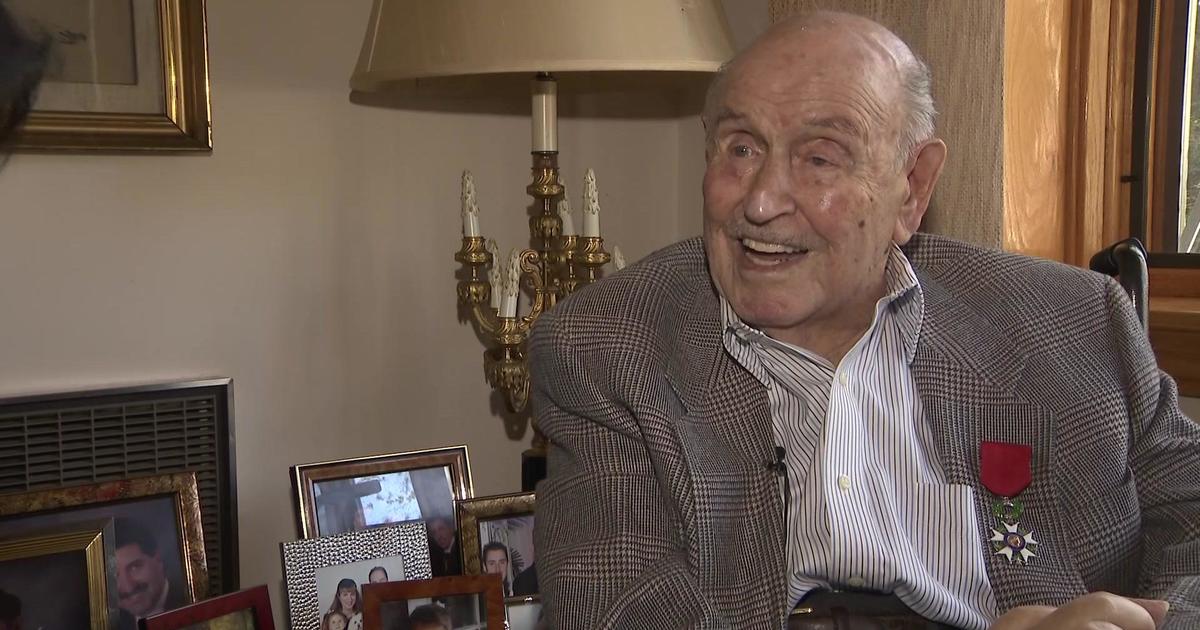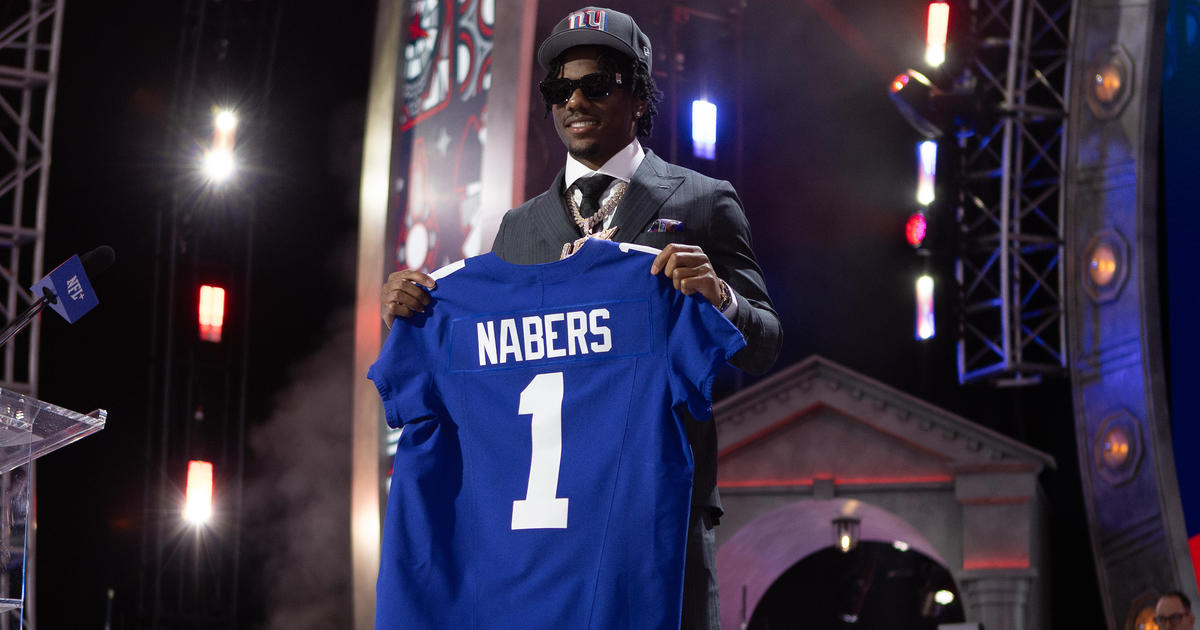July 4th, 2020: Celebrations, Protests, Social Distance Mark An Independence Day Like None Other
A conversation with Louise Stevenson, professor of History and American Studies at Franklin & Marshall College, by Norm Elrod, CBS Local
The upcoming July 4th holiday may prove to be a symbolic turning point in our nation's history, much as that fateful day almost 250 years ago. The country continues to fight the coronavirus, even as much of the world contains it. Effects from that battle are still rippling through the economy, with businesses limited and millions out of work.
Along with these twin catastrophes comes a long-overdue reckoning on racial inequality. It was set off by the killing of a Black man named George Floyd, perhaps the latest tipping point following hundreds of years and countless atrocities. In other words, the country finds itself still struggling to reach the ideals laid out for it in the Declaration of Independence.
July 4th is the holiday on which the United States recognizes its independence. "Historians debate whether we should be celebrating July 2nd or July 4th, the day of the signing or not," says Louise Stevenson, professor of History and American Studies at Franklin & Marshall College. "But we celebrate July 4th, and it is to celebrate the official announcement that the colonies had declared their independence from Great Britain."
On July 8th, 1776, the Declaration of Independence was read in Philadelphia's Independence Square, along with music and the ringing of bells. Local celebrations occurred throughout the colonies as copies of the document circulated. The following year the colonies collectively recognized the occasion on July 4th, with festivities that included bonfires and military displays. Fireworks were set off in Boston and Philadelphia. How the United States has marked the holiday though the years and up to today grew out of those early celebrations.
"Fireworks, speeches and conviviality are all a part of it," notes Stevenson. "It's a local holiday, and it's very definitely a political holiday, when politicians come out and make speeches. And people used to love long, long speeches... But, of course, they were drinking and conversing in the background, so it was a party."
Patriotism has always been a big part of the celebrations as well. Small towns have held parades since the 19th Century. Independence Day speeches remained an occasion for people to gather and listen and carry on. But the national celebration is a more recent development. It wasn't until 1870 that Congress made July 4th a federal holiday. In 1938, they gave federal employees the day off with pay. In 1947, the fireworks display from the National Mall in Washington, DC was televised for the first time.
The July 4th holiday has long been marked by protest as well. Indeed, the Declaration of Independence itself is a statement of protest, listing out grievance after grievance, leading up to a severing of ties. "...these United Colonies are, and of Right ought to be Free and Independent States; that they are Absolved from all Allegiance to the British Crown, and that all political connection between them and the State of Great Britain, is and ought to be totally dissolved..."
The Declaration of Independence was also initially seen as a statement of values. As the original document reads, in part: "We hold these truths to be self-evident, that all men are created equal, that they are endowed by their Creator with certain unalienable Rights, that among these are Life, Liberty and the pursuit of Happiness.--That to secure these rights, Governments are instituted among Men, deriving their just powers from the consent of the governed..."
Protests emerged from the view among many that the country did not live up to those values. The meaning of freedom expressed in phrases like "all men are created equal" and "consent of the governed" was very narrow in 1776. Most Blacks in the colonies, soon to be states, were slaves. Women didn't have the right to vote.
"Everything evolves over time," notes Stevenson. "Originally, it was independence and the formation of a republic. You have to look at the declaration and realize that there are two parts. The first part gives the essential reasons for forming this republic, which are to establish a government, based on the consent of the governed. And that should be at the forefront of what we do to this day. And the second was the statement that all men are created equal. And from that follows how we have developed it."
Frederick Douglass, a famous 19th Century writer and abolitionist, gave a speech at an 1852 event meant to pay tribute to the Declaration of Independence. Decrying it instead, he said:
"What, to the American slave, is your 4th of July? I answer: a day that reveals to him, more than all other days in the year, the gross injustice and cruelty to which he is the constant victim. To him, your celebration is a sham; your boasted liberty, an unholy license; your national greatness, swelling vanity; your sounds of rejoicing are empty and heartless; your denunciations of tyrants, brass fronted impudence; your shouts of liberty and equality, hollow mockery; your prayers and hymns, your sermons and thanksgivings, with all your religious parade, and solemnity, are, to him, mere bombast, fraud, deception, impiety, and hypocrisy — a thin veil to cover up crimes which would disgrace a nation of savages. There is not a nation on the earth guilty of practices, more shocking and bloody, than are the people of these United States, at this very hour."
Slavery lasted through the Civil War, which ended in 1865, and was abolished by the 13th amendment that same year. Soon after, the 14th amendment established equal rights for all free people, and the 15th amendment gave African American men the right to vote.
But society would continue to grapple with inequality. "I looked at one of my favorite journalists, Ida B. Wells, who was an African American who led an anti-lynching crusade," says Stevenson. "And she married the African American publisher of the Chicago Defender. So after World War One, there are some horrible race riots in Washington DC, and her town, Chicago. And, of course, the Defender comments on those. What is the Fourth of July but another time for a race riot? Can't Whites live up to their ideals even on this day of national independence?"
Martin Luther King, Jr. commented on the Declaration of Independence in his "American Dream" sermon, given July 4th, 1965. "Now ever since the founding fathers of our nation dreamed this dream in all of its magnificence—to use a big word that the psychiatrists use—America has been something of a schizophrenic personality, tragically divided against herself. On the one hand we have proudly professed the great principles of democracy, but on the other hand we have sadly practiced the very opposite of those principles."
The ideas laid forth in the Declaration of Independence are a reality for some, but not for others. Recent events have once again demonstrated that very clearly.
July 4th celebrations will continue this year, and so will the protests, as the country continues to aspire to those founding ideals. According to Stevenson, "Black Lives Matter, you could see them as part of this long tradition of African American protest that the ideals of America, the ideals of the United States have not been made real for them."
"There's progress, but it hasn't been fast enough," says Stevenson. "Minority groups are always the ones asked to wait."



